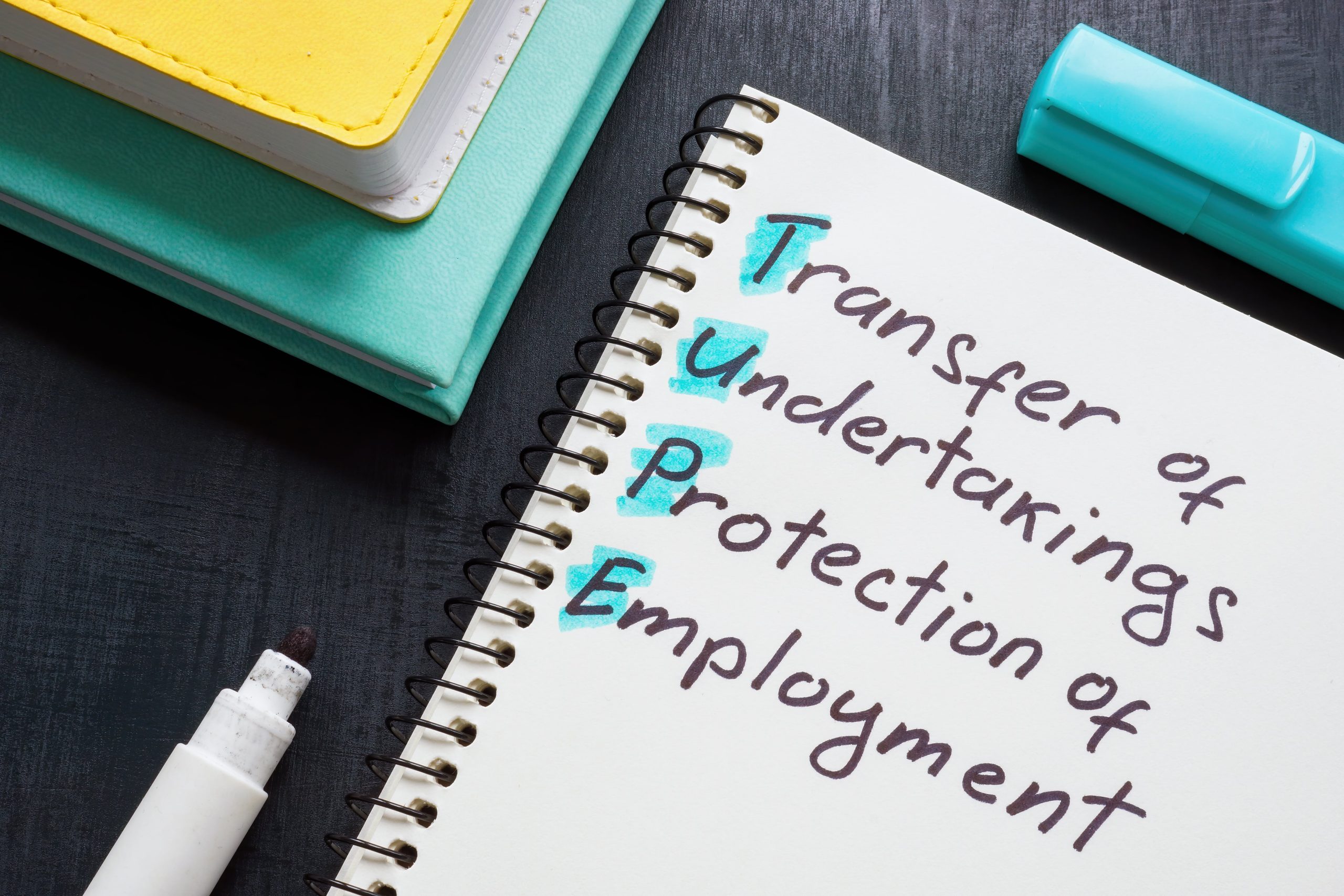BLOG
TUPE 2024 | Simplified consultation rules for small businesses
Written by Susie Lockheart on 1 July 2024

The Employment Rights (Amendment, Revocation and Transitional Provisions) Regulations, which took effect on 1 January 2024, make changes to several areas of employment law, namely working time, annual leave and holiday pay, and TUPE.
In this brief blog, we will focus on the changes to TUPE, recapping what the TUPE Regulations entail, detailing the recent changes, and discussing their potential impact on employers.
What are the TUPE Regulations?
The Transfer of Undertakings (Protection of Employment) Regulations, commonly known as TUPE, are designed to protect employees when a business or service they work for transfers to a new employer. They ensure that employees retain their existing terms and conditions of employment, and prevent unfair dismissal due to the transfer.
TUPE applies to a wide range of transfers, including mergers, sales of businesses, and outsourcing or insourcing of services.
Under TUPE, both the outgoing and incoming employers have specific obligations. The outgoing employer must provide detailed information about the transferring employees to the incoming employer, and both must inform and consult with employees or their representatives about the transfer. This ensures a smooth transition and continuity of employment for the affected employees, safeguarding their rights during what can often be a complex and uncertain time.
Do you need support?
Speak to us for an honest, no obligation chat on:
0345 226 8393 Lines are open 9am – 5pm
How is TUPE changing?
Under TUPE, where there is a relevant transfer, the transferor and transferee must consult with employee representatives. If there are no representatives in place, then in most circumstances, it is necessary to elect them.
Micro businesses – namely those with fewer than 10 employees – are exempt from having to elect representatives. Under the new Regulations, this exemption will be extended to:
- Employers with fewer than 50 employers; or
- Employers of any size involved in a transfer of fewer than 10 employees.
If either of these apply, the employer will be able to consult directly with affected employees, where no existing employee representatives are in place.
This change will apply to transfers taking place on or after 1 July 2024.

Employer impact
This is likely to be a welcome change and should make the consultation process less burdensome for employers involved in business transfers. Direct consultation with employees can save time and reduce the administrative workload, simplifying compliance with TUPE requirements.
The change also reflects existing industry practices, which is often to directly consult in small transfers in any event.
Nonetheless, according to our poll, 10% of employers don’t think that the changes to TUPE go far enough to streamline the process and make it less complex.
Top tips for navigating the new changes regarding direct consultation under TUPE
Understand eligibility
Ensure you are aware of whether your business qualifies for the new exemptions. Specifically, determine if you have fewer than 50 employees or if the transfer involves fewer than 10 employees.
Update policies
Revise your internal policies to incorporate the new direct consultation provisions, ensuring that they align with the updated TUPE Regulations.
Train management
Provide training for managers and HR personnel on the new consultation process to ensure they understand how to conduct direct consultations effectively and compliantly.
Document consultations
Keep thorough records of all direct consultations with employees. This documentation will be crucial if any disputes arise regarding the compliance of the transfer process.
Communicate clearly
Maintain open and transparent communication with employees throughout the transfer process. Clear communication helps build trust and can alleviate concerns employees may have about the transfer.
Related Content
Ensure smooth TUPE transfers with specialist support
TUPE is a particularly tricky area of employment law. WorkNest’s Employment Law and HR experts are here to help you navigate the complexities of employee rights and employer obligations during transfers. Your dedicated team will guide you through every step of the process, ensuring compliance with the law and protecting your business interests.
What’s more, our fixed-fee service ensures you have access to the legal expertise you need without unexpected costs.
For more information, get in touch today on 0345 226 8393 or request your free consultation using the button below.




